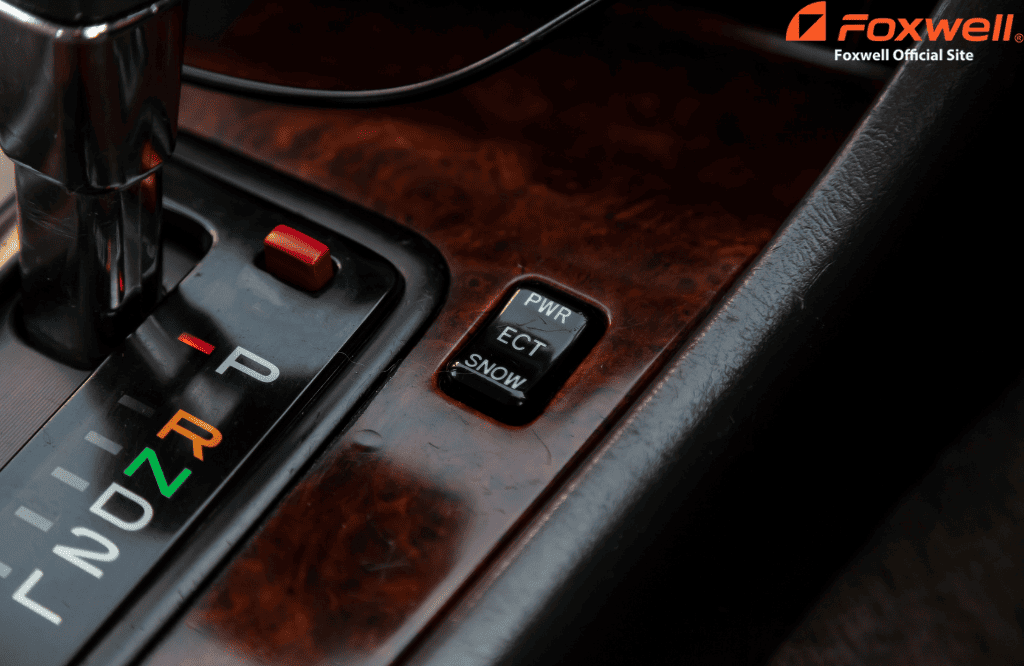This article explains everything you must be aware of the malfunctioning Body Control Module (BCM) in your vehicle. From understanding the function of the BCM to identifying the most common symptoms and repairing the problem the right way, we've got it covered. If you're looking to fix it yourself or need to learn how to contact an expert guide, this article provides the most essential information in a straightforward, easy method.
What is a Body Control Module (BCM)?
The Body Control Module (BCM) is one of the most important electronic components inside your vehicle. It functions as the brain for a variety of electrical systems, regulating features like the lights in your car doors, windows, power as well as alarm systems as well as wipers.
The BCM plays a key role in managing your car's daily electrical systems. It makes sure that all systems it manages are operating correctly, ensuring that your vehicle is running smoothly.
The BCM communicates with other crucial modules inside your vehicle, such as the Engine Control Unit (ECU). It receives data from various sensors, processes the information, and then regulates various functions. For instance, if sensors detect that the door is locked, the BCM sends an alarm to start the central locking system.
In short it's a simple fact that the BCM is vital to the smooth operation of a variety of the electrical components in your vehicle. A malfunctioning BCM can cause numerous issues with these systems, which can lead to frustration and even safety issues.
Common Symptoms of a Faulty BCM (Ranked by Frequency and Severity)
If the Body Control Module (BCM) begins to fail, it won't only cause minor issues, it could cause major issues with the electrical systems of your car. Below are a few of the most frequently reported symptoms, sorted by severity and frequency to help you recognize and resolve possible BCM problems before they become worse.
Car Won't Start or Randomly Stalls
One of the most severe signs of a malfunctioning BCM is a problem with the car starting or slowing down while driving. The BCM plays a crucial function in regulating the ignition system as well as other important functions of engine management. If the BCM is damaged, it may not be sending the right signals to start the vehicle or cause the engine to shut down when you're driving.
This issue is especially troubling since it can affect the overall performance and safety of the vehicle. It can cause you to be in a bind, which is not only unpleasant but also dangerous. The engine of your car shutting down during driving is a major issue that needs to be addressed immediately.
If you notice this, it's crucial to act immediately. If you ignore this issue, it could put you in a dangerous situation, so it's vital to have the BCM replaced or examined before the issue gets worse.

Power Windows Stop Working
Another sign of a malfunctioning BCM is an issue with the power window control system. The BCM regulates the windows' power by sending signals to the motors that control them. If the BCM malfunctions, these signals may not be transmitted correctly, causing windows to stop functioning.
Initially, the issue could be intermittent. But over time, it can get to the point where all of the power windows work. If you encounter this, it's difficult, but it's also an indication that something isn't right in your BCM.
Power windows that are stuck in the down position could expose your vehicle to elements and makes it susceptible to theft. Therefore, it's essential to get the BCM examined when you spot problems regarding the power windows.

Flickering or Non-working Lights
The BCM is responsible for controlling the various lighting systems in your car including taillights, headlights brake lights, as well as interior lights. If the BCM starts to fail the lights may blink, fail or cease to function completely.
In certain situations it is possible that the BCM may fail to turn on the lights when required like when braking. Sometimes lights might behave in a strange manner, turning off or on without warning. This could pose a serious security risk, since it could make your vehicle less noticeable to drivers around, particularly at nighttime.
If you see that your lighting is flickering or not functioning correctly, it's an obvious signal that your BCM may be the cause of the problem. It is crucial to address this issue immediately to avoid issues with visibility on the roads.

Electrical Short Circuits and Blown Fuses
Electrical issues such as short circuits or blown fuses are typical symptoms of a defective BCM. The BCM regulates the flow of power to the various systems in your vehicle. If it fails it could cause circuits and electrical equipment to overload which can result in shorts or blown fuses.
If you find that your fuses are blowing frequently or electrical systems stop functioning without explanation It's probable that the BCM is the cause. These electrical issues could affect other components of the vehicle, resulting in costly repairs if not checked.
Electrical issues caused by a defective BCM are difficult to determine however if you're noticing frequent short or fuse circuits it's best to have your BCM examined. Being able to spot this early could protect you from more severe damage later.

Door Locks Malfunctioning
Another indication of a damaged BCM is an issue with the door locking mechanism. The BCM is responsible for directing the central locking system. If the BCM fails, you could have difficulty locking and unlocking your doors via keys or manual entry.
Sometimes the issue could be minor, such as the key fob being unable to function. In more serious instances, the doors might not automatically lock or unlock and pose security risks. If your BCM is not functioning properly, the BCM may make it much easier for thieves to gain entry into your car, therefore it's crucial to have this issue fixed when you spot it.
If your fob for keys has become suddenly inactive or your car's security locks aren't working correctly, don't be afraid to examine the BCM.

Dashboard Glitches and Malfunctions
The BCM also plays a significant role in determining the information that is that is displayed on the dashboard of your vehicle. This includes vital information such as warning lights, fuel levels, and other important information. If the BCM begins to malfunction, you might be able to spot glitches, like various warning lights flashing, readings that are incorrect, or the dashboard completely malfunctioning.
Although this won't immediately impact the safety of driving around in your car, it could be a nuisance. Inadequate details about the vehicle could cause poor decision-making. For instance, you could not know about an issue with your engine in the event that your dashboard doesn't show the correct warning light.
If your dashboard begins getting agitated, it's an indication that the BCM could be in trouble, and you must inspect it.

How to Diagnose a Faulty BCM
Diagnosing a BCM issue requires a bit of technical know-how. Here are the steps to follow:
- Use an OBD-II Scanner:
- Scan for error codes related to the BCM. Codes like U1000 or B1 are indicators that something’s wrong with your BCM.
- Check Fuses and Wiring:
- Inspect the BCM fuses and wiring. If any fuses are blown or wires are disconnected, this could be the culprit.
- Look for Physical Damage:
- If you have access to the BCM, look for signs of damage, such as corrosion, burn marks, or water damage.
- Test Voltage and Resistance:
- Use a multimeter to check the voltage and resistance across the BCM circuits. This will help you identify faulty connections.
Tools You Need for BCM Replacement
If you’re planning to replace the BCM yourself, here’s a basic tools list:
- OBD2 Scanner
- Multimeter
- Screwdrivers
- Wrenches
- Soldering iron (for fixing connections)
Safety Tips:
- Disconnect the car battery before starting work to avoid electrical shocks.
- Wear protective gloves and safety goggles to protect from any electrical damage or sharp edges.
FAQ
How can I tell when my BCM isn't working?
Find signs of flickering lights, the car not running or door locks not working. An OBD-II scanner will also help pinpoint the problem.
Yes, provided you have basic mechanical skills and the correct tools. Be cautious because a poor installation could cause more damage.
What is the distinction between BCM and ECU?
The BCM regulates non-engine-related systems, such as locks and lights, whereas the ECU controls engine performance. They communicate with one another but perform different tasks.
Could a malfunctioning BCM make my car stop?
Yes, as the BCM assists in controlling important functions, its malfunction can result in the engine not starting or even the car not running at all.
Conclusion
A malfunctioning BCM can cause a significant problem, from electrical malfunctions to security issues. Understanding the signs and signs, how to recognize these issues, and the cost associated with fixing them will aid in keeping your car in good shape. If you suspect that your BCM is not functioning properly, take care to address the issue before it turns into something more serious.




Leave a comment
This site is protected by hCaptcha and the hCaptcha Privacy Policy and Terms of Service apply.